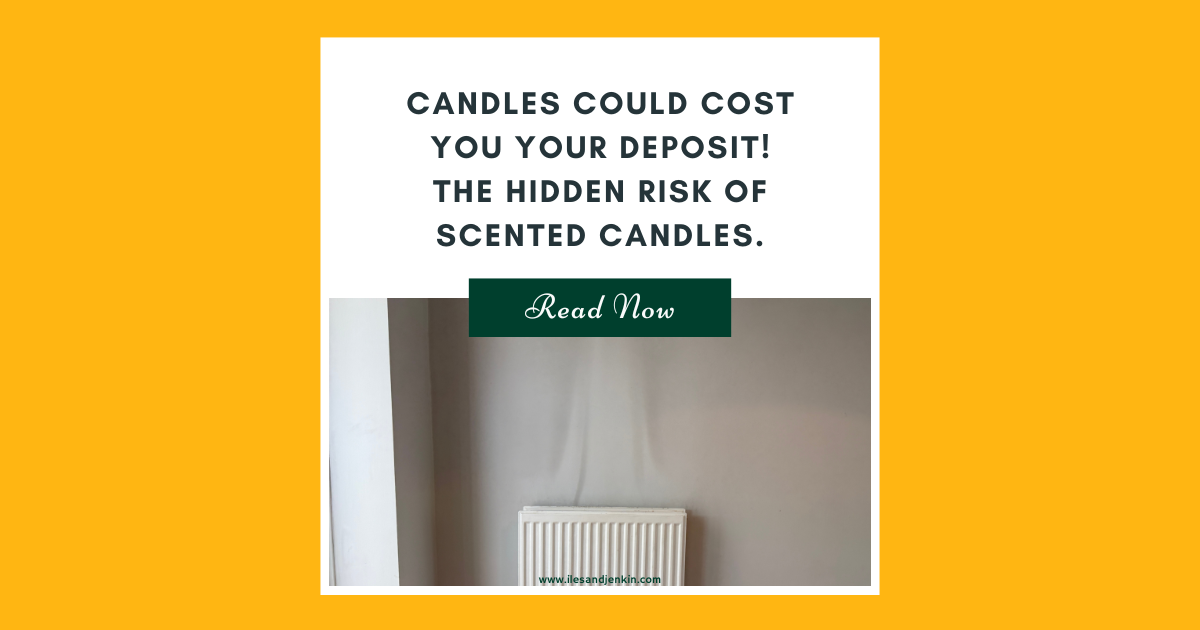The Hidden Risks of Scented Candles in Rental Properties
Scented candles are a popular way to create a cosy, inviting atmosphere. They can make a house feel more like a home and mask everyday smells — but in rental properties, they carry hidden risks that both landlords and tenants need to be aware of.
1. Soot and Smoke Damage
Burning candles, particularly scented ones, can release soot particles into the air. Over time, these can:
Discolour walls, ceilings and soft furnishings.
Leave behind a fine, black residue that is difficult to remove with standard cleaning.
Create patchy marks above radiators, near ceilings or around light fittings where airflow carries the soot.
This damage often only becomes visible at the end of a tenancy, leaving landlords facing costly redecorating bills.
2. Fire Hazards
Candles are an obvious fire risk in any home, but in rental properties the consequences can be even more severe:
An unattended candle near curtains or furniture can cause a fire within minutes.
Scented candles in glass containers can sometimes overheat and shatter, spreading flames.
A fire in a rental not only endangers lives but can also trigger insurance issues, re-homing costs and legal complications.
3. Health Concerns
Scented candles release chemicals and particulates when burned. For tenants with asthma or allergies, this can cause respiratory irritation. In poorly ventilated rooms, build-up of smoke and fragrance compounds may worsen indoor air quality.
4. Impact on Deposits
If candle use leads to:
Stained walls,
Burn marks on furniture, or
Lingering strong odours…
…the tenant is likely to lose part of their deposit to cover cleaning, redecorating or repairs.
5. Insurance and Liability
If damage is caused by candles, insurers may not always pay out - especially if negligence (such as leaving candles unattended) can be proven. This leaves both tenants and landlords financially exposed.
Safer Alternatives
Landlords may want to remind tenants of safer, low-risk alternatives:
LED candles and diffusers provide atmosphere without open flames.
Reed diffusers or plug-in air fresheners can add fragrance without soot damage.
If tenants do use candles, encourage them to use them sparingly, never leave them unattended, and place them on heat-resistant surfaces away from soft furnishings.
Final Thoughts
While scented candles seem harmless, the risks they pose in rental properties - from wall damage and fire hazards to deposit deductions - are significant. For landlords, it’s worth making your position on candle use clear in tenancy agreements or welcome packs. For tenants, being mindful of these risks can avoid disputes and protect deposits.
If you need any additional advice on this, please do not hesitate to get in touch.



 By
By 
 posted by
posted by 


Share this with
Email
Facebook
Messenger
Twitter
Pinterest
LinkedIn
Copy this link